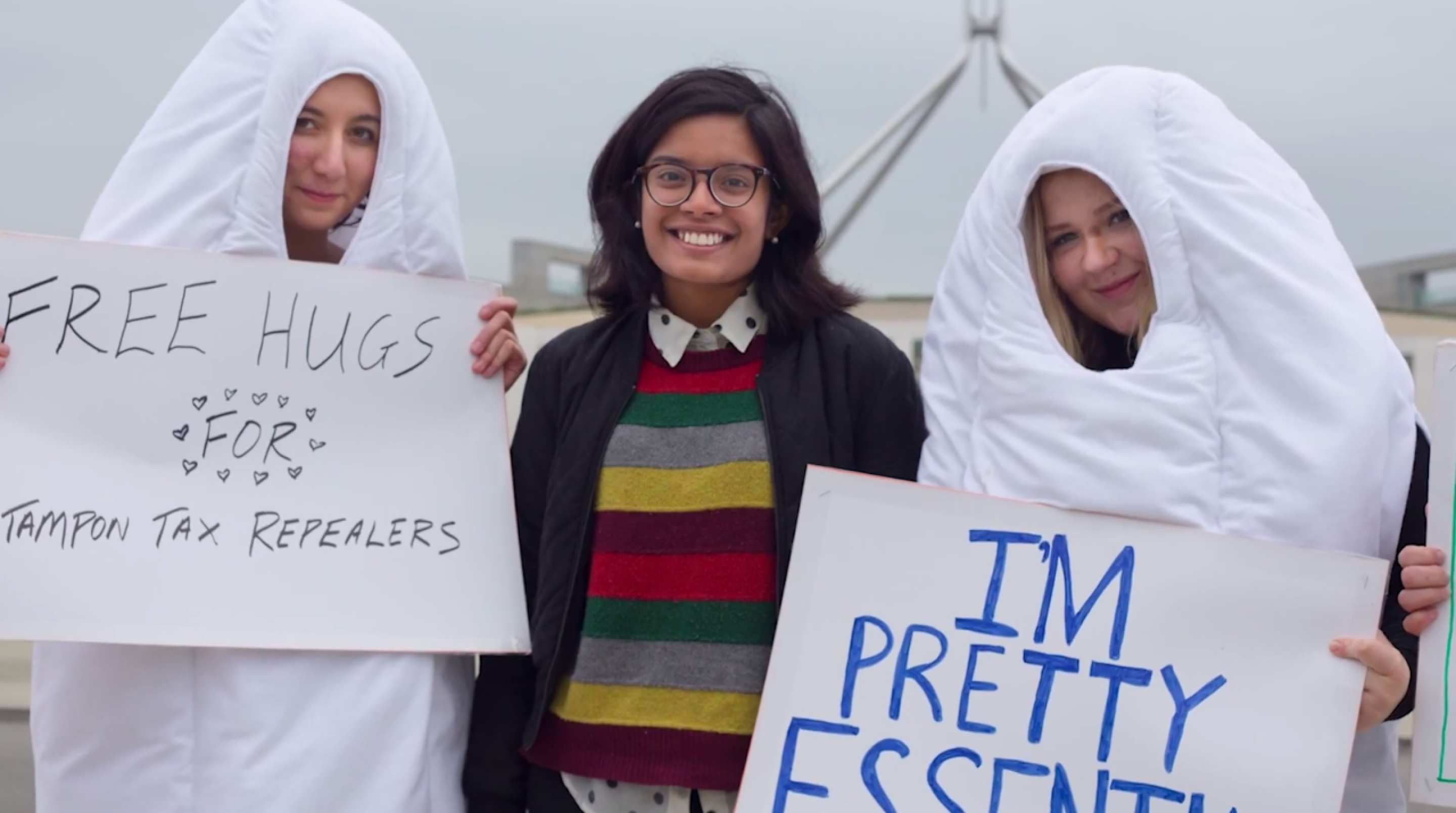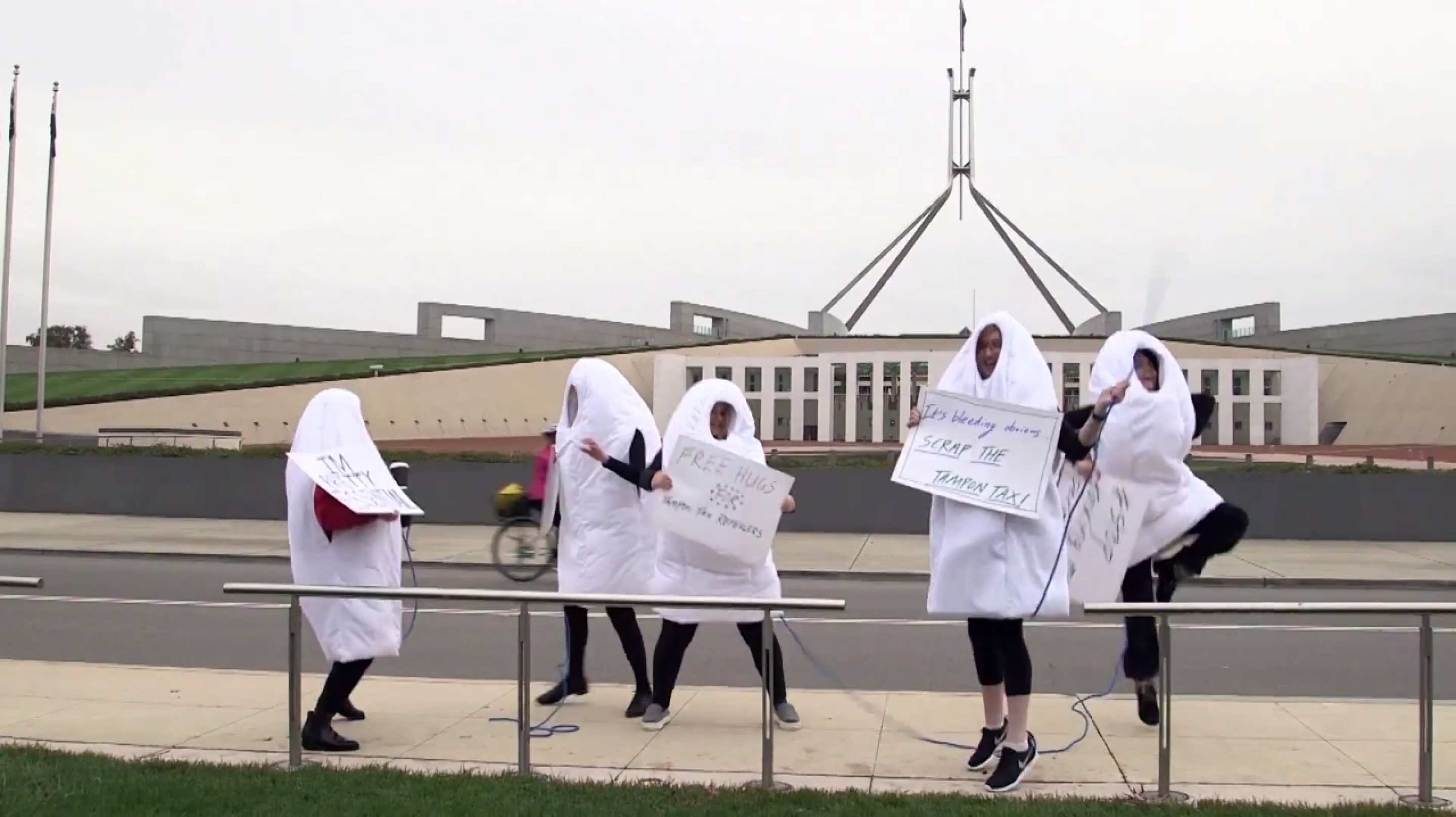Student turns tampon tax into national conversation
No doubt over the last week you've heard something about the tampon tax. The phrase refers to the adding of GST to sanitary pads and tampons. The issue has received a significant amount of media attention after a petition was started by University of Sydney student Subeta Vimalarajah, calling for sanitary products to be exempted.

Subeta and other students campaigning outside Parliament House.
The petition reached a new level last Monday night when Subeta put the issue to Treasurer Joe Hockey on the ABC’s Q&A.
Subeta, who holds the position of Wom*n’s Officer with the Students' Representative Council, says it was an experience she will never forget.
“It was so overwhelming to have Mr Hockey make a commitment to take this issue to the states. I was so grateful for his response,” says Subeta.
While there is no definitive outcome for the petition yet, there’s no doubting it has succeeded in triggering a national conversation. Almost 100,000 people have signed it in support.

Stories about the tampon tax and its political fortunes have been published by ABC online, Sydney Morning Herald, The Guardian, SBS, West Australian, Australian Financial Review, 9News.com.au, as well as Buzzfeed, Pedestrian TV and Yahoo7News.
Her photograph and the petition were even included in an article on the BBC website about the state of taxes on sanitary products around the world.
Subeta says she was “definitely” surprised by the amount of media attention.
“I think the campaign has been successful because this is an issue that affects so many Australians and is a clearly unfair policy,” she says. “There have also been a lot of campaigns around this issue in the past that have progressively raised awareness – I think this campaign signifies the tipping point.”
Subeta was also an editor of Wom*n’s Honi, which hit shelves around campus last week.
Related articles
Dementia tsunami: Alzheimer's and other dementias to triple by 2050
Governments need to take action on delaying the onset of Alzheimer's disease and other dementias, argues Associate Professor Lesley Russell.
Three ways to reform research that won't break the budget
Australia needs a new, long-term strategy for research, writes Professor Duncan Ivison, Deputy VIce Chancellor (Research).
Between the South China Sea and human rights
Prime Minister Turnbull's decision to criticise China on the South China Sea issue, but avoid touching on the human rights issue, can be seen to be in the best interests of Australia, writes Klaus Raditio.
Sydney excels in national research engagement and impact assessment
University of Sydney joins SCRIPTS Centre of Excellence
New NSW Public Policy Institute to be established
$2.3 million to support industry partnerships for 21 projects
Twenty-one projects have been awarded funding under the University's industry and community engagement seed fund.
Australia’s infrastructure service providers innovating for customers
Big data, digital technology and other innovations used by infrastructure providers are delivering better customer outcomes, according to a new paper by the John Grill Centre for Project Leadership.
Sydney hosts prestigious Harvard conference
The Harvard Project for Asian and International Relations 2017 Asia conference is being held in Sydney from August 17-21. Over 600 delegates from over 70 countries will be coming to our shores to attend this unique event.